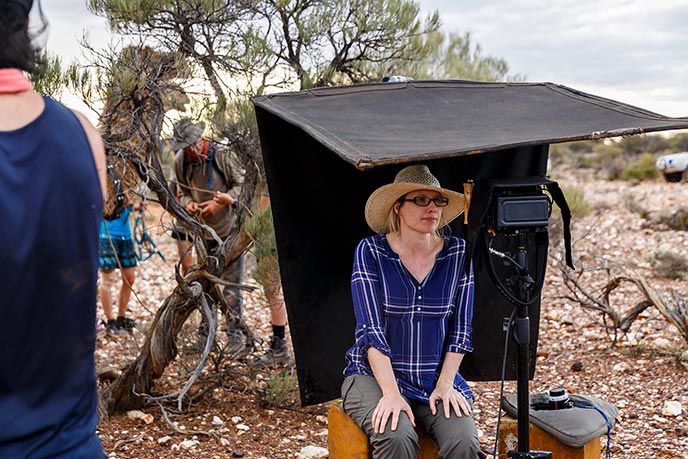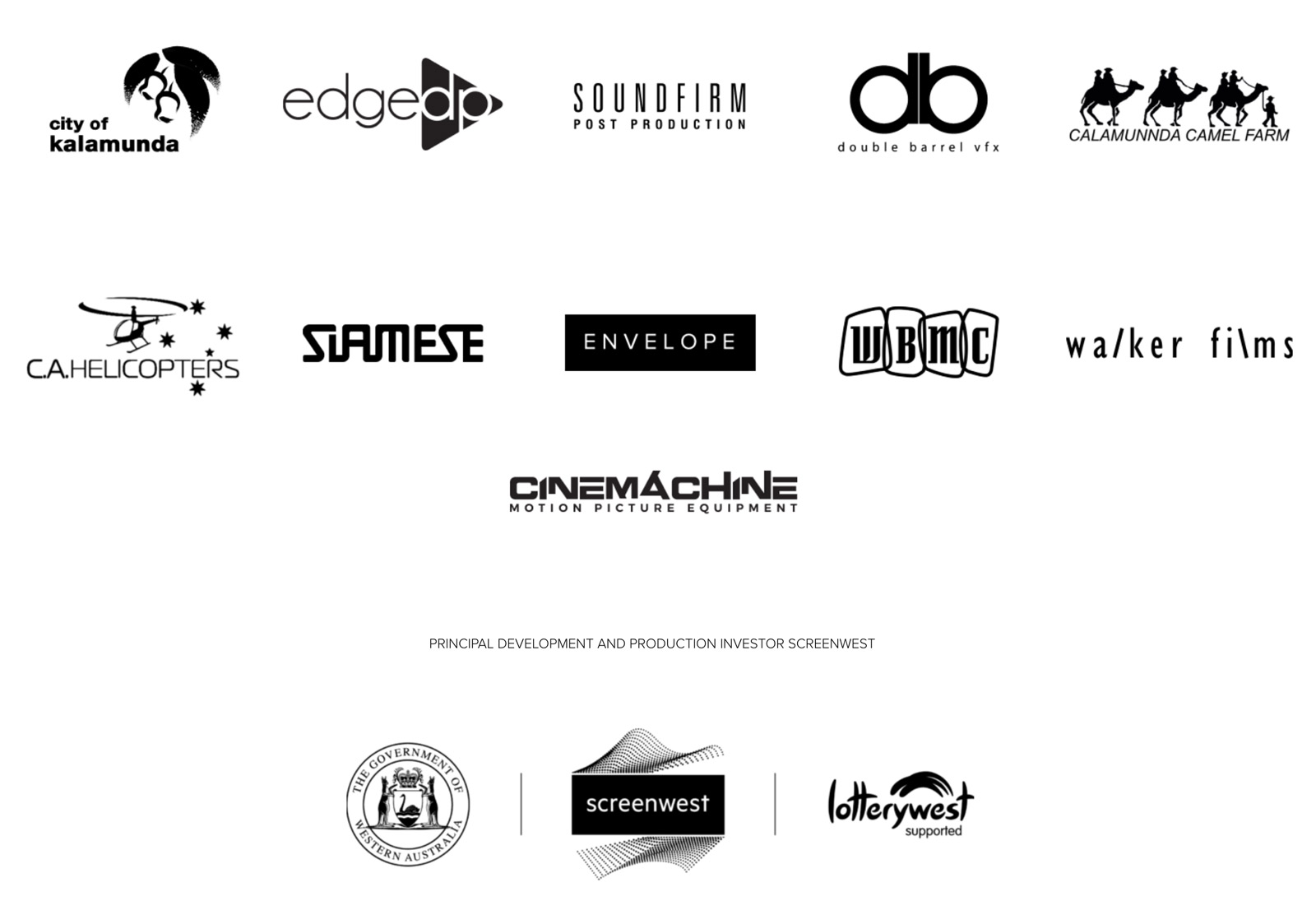Taking too long? Close loading screen.
In outback Australia a wild camel is captured and fitted with a tracking device known as a Judas Collar.
Based on a real life practice, Judas Collar is a scripted, non-dialogue, live action short that explores the story of a camel used to betray her kind.
Directed by Alison James
Produced by Brooke Tia Silcox
Director of Cinematography: Michael McDermott
Edited by Lawrie Silvestrin
In outback Australia a wild camel is captured and fitted with a tracking device known as a Judas Collar.
Based on a real life practice, Judas Collar is a scripted, non-dialogue, live action short that explores the story of a camel used to betray her kind.

Judas Collar – One of the Best Short Films to Come Out of Australia
Judas Collar at Brooklyn Film Festival 2019
How an Aussie Film starring a camel is gunning for an Oscar
Judas Collar Wins Big In Austin Texas
Judas Collar wins at 2018 Austin Film Festival
Judas Collar catches Camels’ Plight
Curse of Judas Camel
Four WA Film Makers head to Flickerfest for Top Award
Audiences applaud a bold voice in Australian Cinema
3 Tips to make it as a WA Director
Judas Collar Nominated for an AACTA Award
Meet the Camels in Kalamunda
New Short Film Judas Collar is Oscar Contender
Judas Collar Takes Top Prize 2019 St Kilda Film Festival
What is the Judas Collar
Finding a Voice without dialogue – the AFF Winning Short Film Judas Collar by Alison James
Brooke Silcox is a triple threat at the Sydney Film Festival 2018
Gooseberry Hill producer up for award in Australia’s answer to the Oscars
How to turn eight ornery camels into an Oscar chance
‘Judas Collar’ wins best narrative short film at Austin Film Festival 2018
The Weekend Australian: Film Judas Collar captures camel’s plight
Successful Elevate projects for 2017 announced : Judas Collar
AACTA announces first nominees and new stand-alone shorts fest
Judas Collar Nominated For 2018 AACTA Awards
Sydney Film Festival award winners announced
MIFF Program
Sydney Film Festival Program
ACMI
The Sunday Times: Curse of Judas Camel
Audiences applaud a bold voice in Australian cinema
Represented by WME and Grandview in Los Angeles, Alison is an award-winning drama director and writer working between West Hollywood and Perth, Western Australia. Alison thrives on adventure and seeks to tell bold, original stories. She is currently developing two feature projects; a US action-survival film and an Australian-set dramatic thriller.
For her work on Judas Collar, Alison was awarded the Australian Writer’s Guild Award (AWGIE) for Best Short Film and won Best Director at St Kilda Film Festival. She also received an Australian Directors Guild Award nomination and a Special Jury Mention for Best Director at the Sydney Film Festival. Judas Collar follows up on two performance-based shorts You Have Blue Eyes and Sentence, filmed in West Australia’s only juvenile prison.
Prior to her scripted work Alison directed over fifty hours of factual television for Discovery, National Geographic, ABC, SBS and the BBC, filming in China, Honduras, Germany, England, Ireland, Iceland and the USA. Highlights include working with Indigenous Elders, oil and gas workers, multi-millionaire entrepreneurs, people with intellectual disabilities, Nobel winning scientists, migrants, refugees, prisoners and survivors of terrorism and war.
She also filmed alongside Australia’s toughest truck-drivers in remote and punishing desert conditions as a field director on twenty-four episodes of Outback Truckers.

“Incredible. Powerful. Sad. It made me cry. I don’t know how the filmmakers pulled it off. It’s so gut-wrenching.” BENDFILM INC

“The Judas Collar preys upon the most human qualities of the camel – its need for connection, family and belonging.”
Some stories can change the course of your entire life and this is one of them. I had been directing on the Australian show Outback Truckers, filming alongside Australia’s toughest truck drivers and I was researching a new series on remote helicopter pilots. I came across the words Judas Collar and learned that it was a tracking device where a single animal was used to betray the location of its herd in order for them to be tracked and shot from a helicopter.
It was a scientific device with a religious name.
“I knew I had to tell this story and it couldn’t wait. Less than forty-eight hours after encountering this story, I quit my full time job and started writing Judas Collar.” – Alison James
I wrote four drafts of this story with a human central character. Making the decision to take the camel’s perspective meant leaving behind words of any kind. It meant relying on the central performance of a camel and it was truly terrifying.
“That a camel might become self-aware and sentence itself to a life of solitude for the betterment of its kind is such an incredible display of self-sacrifice that for me it transcends words.”- Alison James
Without dialogue for exposition, the story had to be incredibly clear and the camel’s emotional journey had to be completely externalised. All craft elements would need to build on each other so that an audience might enter this strange desert world and connect with a camel.
As an audience, we can see that the Judas will only be a danger to the herd until the battery on her collar runs out – and yet she will never know that it is safe to return.
“To unwittingly cause pain to those you love most until you decide to live a life of loneliness is one of the saddest stories I have ever heard. And yet it’s a story that is deeply and tragically human.” – Alison James
Sometimes we retreat to save the herd.
